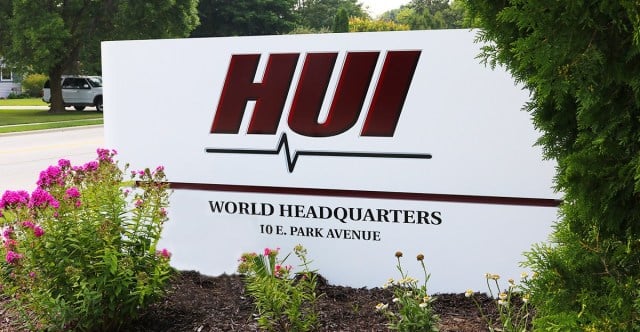Phillip Bock, HTR Media—Author
KIEL – The recession hit HUI Manufacturing, but an economic rebound has the business poised for growth.
"When your business is growing, you need to have the people to meet the demand," said Nick Rolf, market development director at HUI, a custom manufacturer specializing in sheet metal production of industrial products and medical carts. "We are going to be hiring anywhere between eight to 12 people over the course of the next year."
Other local manufacturers are experiencing similar growth, resulting in a limited pool of skilled workers.
"There is a ton of manufacturing in this little area," Rolf said. "There were times this summer where there were more jobs than there were people. When you look at Kiel, you have Sargento, Amerequip, HUI, Stoelting, Weber HG, Wind Walker Labels — some very large employers in this area. When you're seeing hiring signs by all of us, it is pretty evident that there is not enough people."
Custom solutions
HUI focuses on developing custom solutions for customer needs — and jobs available at the business are as varied as its product line. From customer service and engineering to prototyping and production, HUI has a multitude of careers under one roof.
HUI has found a niche in developing custom carts for the medical field and sheet metal cabinets for industrial-use. Each custom product is taken from customer concept and engineering into prototyping and production.
"Someone is coming to us because they want to utilize our expertise in engineering. We can engineer it, we can prototype, and we can run production," Rolf said. "When a product comes in and goes through all of those work centers, that is where we can give the most value to a customer."
When hiring employees for careers on the shop floor, HUI focuses as much on an individual's personality as the skills possessed. Specific production skills are not required to get in the door, only a GED or high school diploma is required, and HUI provides internal training to all new employees regardless of experience.
"The people that work at HUI are dedicated employees. When we go out to hire people, we hire people for who they are, not what they know," Rolf said. "You have to know some of the fundamentals, but at the end of the day you are hiring people that are creative people, who will problem solve, and who will address the issues."
"It is nice for people to have base knowledge on how to weld, but it is not a requirement," HUI Human Resources Coordinator Megan Vogel added. "We can take someone who has worked at a grocery store and teach them how to weld."
In-house advancement
Pay rates at the company are competitive with other local manufacturers, Rolf said, but the more employees know, the more they can make — and the company focuses on promoting from within. Rolf himself started on the shop floor as a production worker before taking an interest in human resources and marketing.
"I started here right out of high school," he said. "I was a fabricator, so I welded and ran a press break. It got to the point where I wanted to do something more. I enjoyed working here and felt that with the knowledge I had working on the shop floor that I could apply that elsewhere within HUI."
The shop floor consists of laser cuts, press breaks, welders, assembly positions, material managers, and a variety of other production tasks — and HUI encourages employees to cross train on the various stations.
"I started out on the press break. I did that for about a year and then I trained on welding," HUI fabrication technician Jeb Reiss said. "You're allowed to move around wherever the majority of work is. (There is an) ability to grow and expand knowledge, without doing the same thing every day."
Both employees in the office and on the shop floor work in teams to complete customer products.
"That is one of the pieces to what I call our 'secret sauce,'" Rolf said. "People that we hire are going to be part of a team-based environment. They are going to work hand-in-hand with other teammates."
Hours vary on the shop floor depending on production volume. The organization plans nine hour days into the schedule, but flexes hours as needed.
"That allows you to take your business up 10 percent and down 10 percent and not hire or lay off a bunch of people," Rolf said. "So when you plan nine hours a day, I can take the business up to 10 (hour days), or if I have to 11 or 12, or bring it all the way down to eight."
Medical carts produced by approximately 90 employees are shipped to OEM supplies and medical device companies across the United States. Their industrial products, such as electrical cabinets, are shipped throughout the Midwest. As the two markets grow, HUI expects to add employes over the next several years — both on the shop floor and in office positions.
"I think some people think 'I'm going to be in a factory for the next 45 years of my life,'" Rolf said. "It doesn't have to be that. Start your career out in a factory floor position, get some experience under your belt. It comes down to developing the skills to be successful and take that success and apply yourself into doing more than being a machine operator. Stand out among your teammates."
Originally posted by the Sheboygan Press.
 HUI dedicates itself to helping our customers design the solutions they need and launching quality products on time and within budget.
HUI dedicates itself to helping our customers design the solutions they need and launching quality products on time and within budget.